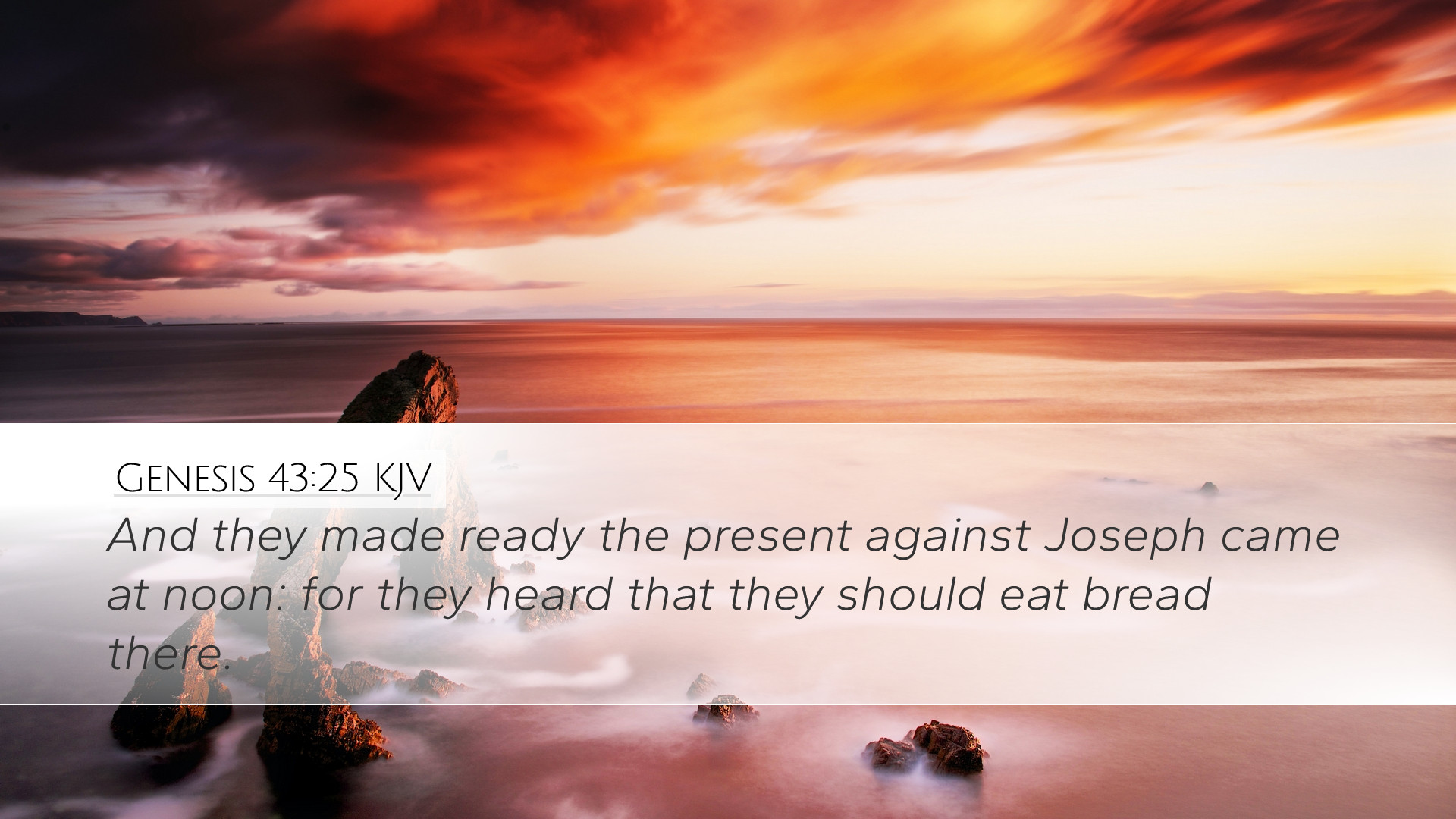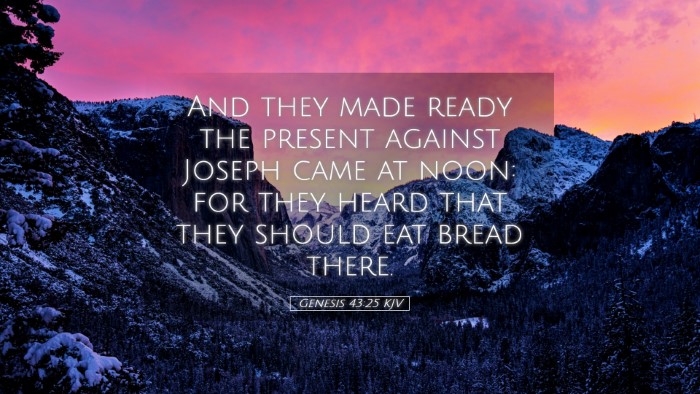Commentary on Genesis 43:25
Verse Text: "And they made ready the present against Joseph came at noon: for they heard that they should eat bread there." (Genesis 43:25)
Introduction
This verse occurs in the context of Joseph's complex relationship with his brothers, providing a pivotal moment in the narrative. The preparation of the present symbolizes the reconciliation journey and the unfolding of divine providence.
Contextual Background
The backdrop of Genesis 43 revolves around the severe famine that impacted Joseph's family in Canaan. The brothers were compelled to return to Egypt to buy grain. They faced the dual challenge of hunger and the fear of Joseph, whom they sold into slavery, now ruling over Egypt.
The verse highlights their preparations as a response to previous encounters with Joseph, setting the stage for emotional and relational developments.
Commentary Insights
-
Matthew Henry:
Henry emphasizes the weight of familial guilt that the brothers bear. Their decision to present gifts to Joseph reveals a consciousness of their previous wrongdoings. The act of preparing a present reflects their hope to gain favor in Joseph’s eyes.
-
Albert Barnes:
Barnes points to the significance of the time of day—noon—as indicative of cultural practices around hospitality. This raises an expectation of kindness and openness in Joseph's home. The noon meal serves as a metaphoric break from the tension that permeates their relationship.
-
Adam Clarke:
Clarke adds depth by highlighting the presents' nature and selection. They were likely chosen to signify reconciliation and respect. Clarke notes how these offerings reflect their underlying desire to restore familial bonds whilst navigating their shame and guilt.
Theological Implications
This verse sheds light on themes of repentance and reconciliation. The act of bringing a gift signifies a desire to amend past grievances. From a theological perspective, we observe a model for approaching those we have wronged, embodying humility and a recognition of our faults.
Application for Pastors and Theologians
For pastors, this verse serves as a poignant example to encourage congregants to make amends where wrongs have been committed. It emphasizes the importance of acknowledging past sins and actively seeking reconciliation. Pastoral care can draw from this narrative to help individuals understand the necessity of humility and proactive steps in restoring broken relationships.
The narrative also invites theological reflection on God's providence. Joseph, once a victim of betrayal, now serves as an instrument of salvation for his family. This duality reinforces the overarching Biblical theme of redemption.
Conclusion
Genesis 43:25 is a powerful verse steeped in cultural, emotional, and spiritual significance. The act of preparing a present against Joseph's arrival encapsulates an attempt at reconciliation that parallels many Biblical themes. Reflecting on this verse prepares those in ministry and scholarship to better understand the dynamics of sin, remorse, and divine restoration through the lens of Joseph's story.


